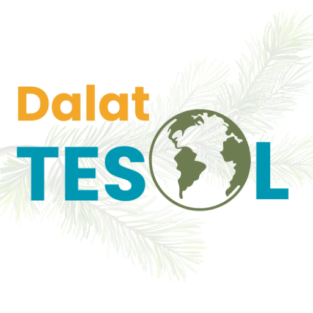By DalatTESOL
Intercultural communication in EFL is no longer just about “cultural facts” or holiday traditions. It spans identity, ideology, power, and pedagogy. As English becomes increasingly global, EFL learners and teachers must navigate not only linguistic forms but also cultural expectations, communicative norms, and new forms of interculturality.
Below are 10 major research areas, each with example questions and suggested directions for future research.
1. 🌐 Intercultural Communicative Competence (ICC)
Focus: How learners develop the skills, knowledge, and attitudes to communicate effectively across cultures.
Examples:
- How do Vietnamese EFL students demonstrate intercultural awareness in speaking or writing tasks?
- What role do textbooks play in promoting (or neglecting) ICC?
Keywords: Byram (1997), Deardorff (2006), attitudes, skills of interpretation, critical cultural awareness
2. 🧑🎓 Student Identity and Cultural Negotiation
Focus: How language learners (re)construct their cultural and linguistic identities.
Examples:
- How do students studying English abroad negotiate Vietnamese and host culture identities?
- What tensions do learners face between local norms and global English expectations?
Relevant Theories: Norton’s (2013) language learner identity; poststructuralist views on identity-in-practice
3. 📖 Textbooks and Cultural Representations
Focus: How cultures are represented (or misrepresented) in EFL materials.
Examples:
- Whose culture is included in EFL textbooks in Vietnam?
- Are global textbooks culturally inclusive or Western-centric?
Methods: Critical discourse analysis, multimodal analysis, textbook review
4. 🏫 Teachers’ Beliefs and Practices in Teaching Culture
Focus: How EFL teachers conceptualize and integrate “culture” into language lessons.
Examples:
- What do Vietnamese EFL teachers understand by “teaching culture”?
- How do they balance teaching English norms with promoting intercultural awareness?
Potential Tools: Interviews, teacher journals, classroom observations
5. 🧠 Pragmatic and Discourse Failures in Intercultural Settings
Focus: Misunderstandings due to different pragmatic norms (e.g., politeness, silence, indirectness)
Examples:
- How do Vietnamese students interpret and respond to speech acts like requests or compliments in intercultural conversations?
- What kinds of misunderstandings arise between Vietnamese learners and native speakers?
Frameworks: Politeness theory (Brown & Levinson), speech act theory, pragmatics
6. 🎧 English as a Lingua Franca (ELF) and Interculturality
Focus: Communication among non-native speakers using English across cultures.
Examples:
- How do Vietnamese students adapt their English in ELF interactions?
- What strategies do they use to ensure intelligibility and manage differences?
Themes: Accommodation, negotiation of meaning, non-standard forms
7. 🧑🏫 Intercultural Challenges in EFL Classrooms
Focus: How intercultural misunderstandings affect classroom interaction, participation, or expectations.
Examples:
- Why might Vietnamese students be perceived as passive in Western classrooms?
- How do cultural norms around face and authority shape classroom behavior?
Approaches: Ethnographic case studies, classroom discourse analysis
8. 📱 Digital Communication and Intercultural Learning
Focus: How students use social media, messaging, or online platforms to interact across cultures.
Examples:
- How do EFL learners engage in intercultural exchanges on Instagram, TikTok, or language exchange apps?
- What kinds of identity work are visible in digital communication?
Emerging Concepts: Digital interculturality, translanguaging, online identity
9. ✈️ Study Abroad and Cultural Adaptation
Focus: What happens when learners move between cultural and linguistic contexts.
Examples:
- How do Vietnamese EFL students in Australia experience culture shock and adaptation?
- What intercultural challenges emerge in short-term exchange programs?
Data Sources: Reflective journals, interviews, critical incident reports
10. 🧭 Critical Intercultural Communication and Ideology
Focus: How power, inequality, and ideology shape intercultural dialogue.
Examples:
- How are Western norms constructed as “correct” in English language teaching?
- In what ways do global EFL policies reinforce or resist cultural hegemony?
Frameworks: Holliday (2010), Dervin (2016), critical interculturality, postcolonial perspectives
Bonus: 🔍 Emerging Directions
- AI and intercultural chatbots in EFL
- Intercultural competence in EMI (English-Medium Instruction) programs
- Multilingual identity and border-crossing communication
- Assessment of intercultural learning outcomes
📌 Final Reflection
These research areas are not mutually exclusive. Many overlap—student identity intersects with ELF, textbook content links to ideology, and digital interaction relates to discourse practices. As a graduate student, consider:
- What topic resonates with your experience or teaching?
- What methodology best fits your question (interviews, case study, CDA, surveys)?
- What contribution can your study make to policy, teaching practice, or theory?
